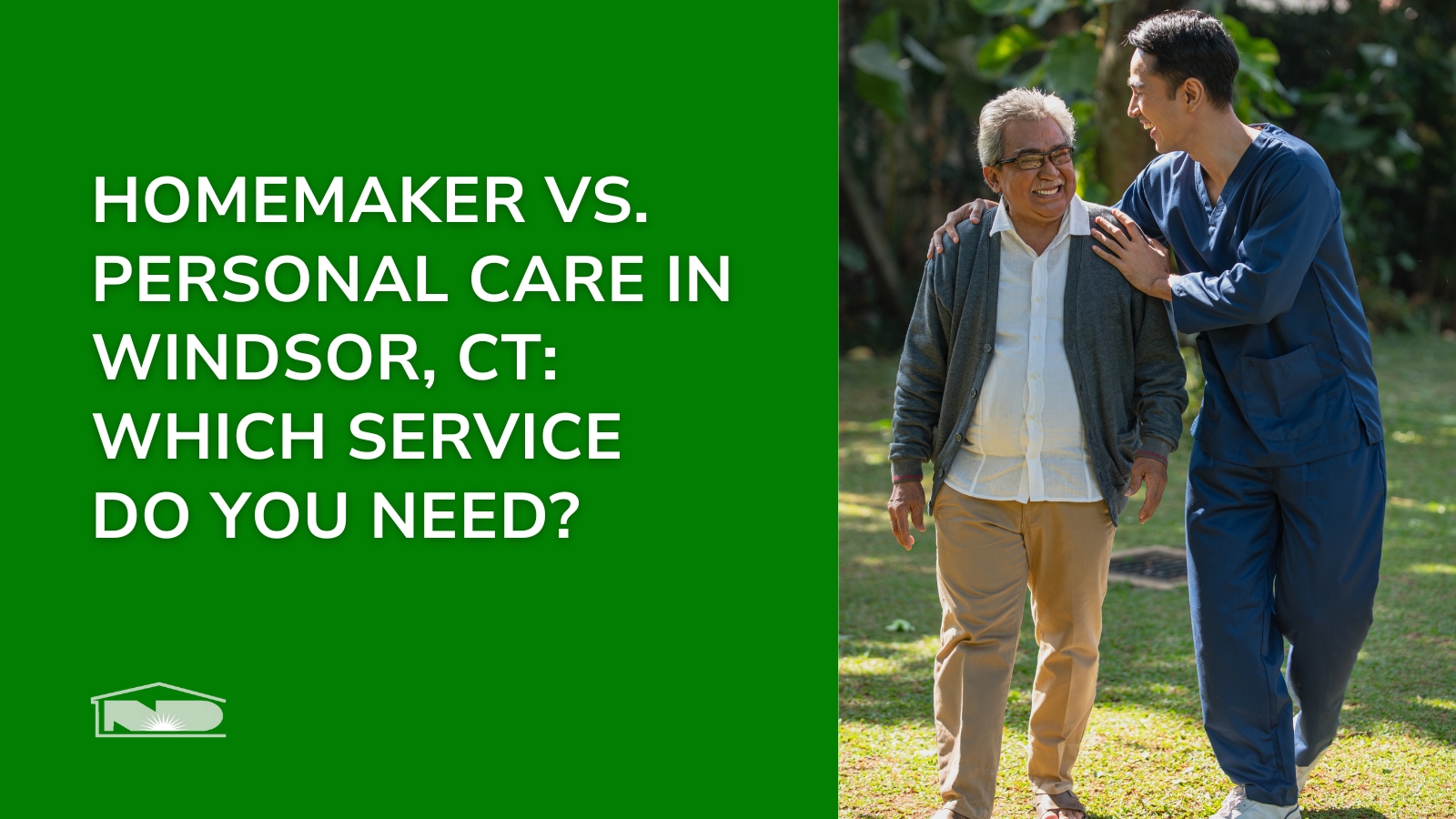Choosing the right type of home care can feel overwhelming—especially when faced with terms like personal care services, homemaker services, or assisted living facility. For families in Windsor, CT, understanding these options is essential in providing the best care for loved ones who are aging, managing illness, or recovering from a medical event.
In this blog, you’ll discover the key differences between homemaker and personal care services, their benefits, and how to choose the right service based on your unique needs. You’ll also learn tips, common mistakes to avoid, and how these services can improve daily living for seniors.
Understanding Personal Care: A Hands-On Approach to Health and Hygiene
Personal care is a service designed for individuals who need help with daily physical tasks. This could be due to age-related challenges, a medical condition like dementia, or limited mobility after surgery.
Trained home health aides or caregivers offer support with activities that many take for granted, including:
- Bathing, grooming, and dressing
- Support with skin care, oral care, and hair removal
- Managing personal hygiene and toileting
- Transferring from bed to chair or helping with walking
- Administering medication reminders
These personal care services are typically non-medical, but they’re critical to ensuring health, comfort, and dignity. Families often choose personal home care when their loved one wants to stay at home but can no longer manage tasks alone.
What Homemaker Services Provide: Comfort Beyond Basic Care
While personal care addresses physical needs, homemaker services focus on maintaining a livable, safe, and nurturing environment. They’re an excellent solution for individuals who are still relatively independent but need help with daily chores and companionship.
Some common homemaker tasks include:
- Light cleaning and organizing
- Laundry and dishwashing
- Meal planning and preparation
- Grocery shopping and errands
- Companionship and safety check-ins
This type of home care is especially useful for seniors dealing with aging-related fatigue or those living with chronic conditions who may need help with hour care rather than full-time assistance. For example, someone recovering from a hospital stay may benefit from both home health care and homemaker support.
Which One Do You Need? Personal Care or Homemaker Services?
Deciding between these two types of home care services depends on your loved one’s current needs. If they struggle with physical activities like bathing or mobility, personal care is likely the better fit. However, if they just need help around the house or someone to talk to, homemaker services may suffice.
Assisted Living and Respite Options: When More Care Is Needed
For those needing a broader level of support, transitioning to an assisted living facility may be the next step. These facilities combine health care, supervision, and lifestyle services, making them ideal for individuals with complex needs.
Respite care, on the other hand, provides short-term relief for family caregivers. Whether it’s just for a weekend or several weeks, respite services can take place at home or in a nursing home, offering a break while ensuring quality care continues.
These services can include both medical care and emotional support, giving family members time to recharge while maintaining their loved one’s routines.
How Personal Care Services Improve Daily Life
Many families underestimate just how transformative personal care services can be. They help seniors regain independence, reduce risks like falls or infections, and support mental well-being.
For example, consistent help with feminine care and oral care can prevent health complications. Proper use of personal care products, such as electric shavers, oral care products, and safe skin care solutions, makes daily routines more manageable and pleasant.
Personalized care plans ensure that each individual receives support tailored to their specific challenges—whether it’s managing a chronic condition or adjusting to the natural effects of aging.
Common Mistakes to Avoid When Choosing Home Care Services
Choosing the wrong type of care can lead to frustration and unmet needs. Here are a few common mistakes—and how to avoid them:
- Ignoring Medical Needs: Some families choose homemaker services when medical home care or palliative care is more appropriate. Always consult a healthcare professional before deciding.
- Overestimating Independence: Seniors may downplay their limitations. Watch for subtle signs—like missed medications or hygiene changes—that indicate they may need personal care.
- Neglecting the Emotional Aspect: Social isolation is a major concern. Even if your loved one doesn’t need medical help, companion care through a homemaker can drastically improve their mood and engagement.
- Delaying Care: Waiting too long can increase risks like falls or malnutrition. Be proactive and consider home care as a preventive step, not a last resort.
How to Determine the Best Fit: A Simple Guide
When assessing your loved one’s needs, consider these questions:
- Do they need help with bathing, grooming, or toileting? → Opt for personal care services.
- Is the home becoming messy, or are meals being skipped? → Consider homemaker services.
- Are both physical and emotional needs present? → A combined approach may be best.
- Is the caregiver overwhelmed or unavailable? → Look into respite care or short-term assistance.
- Is the individual’s condition progressing, such as advanced dementia or disability? → Plan ahead with medical home care options.
Conclusion: Empowering Your Family With the Right Home Care
In Windsor, CT, families are fortunate to have a variety of supportive home health care solutions available. Whether you’re navigating personal care, homemaker services, or exploring an assisted living facility, the most important decision is the one that preserves your loved one’s comfort, dignity, and health.
Home care isn’t just about chores or medication—it’s about creating a safe, supportive environment where individuals can thrive. By understanding each type of care and evaluating your family’s needs honestly, you can confidently select the service that promotes both independence and well-being.

